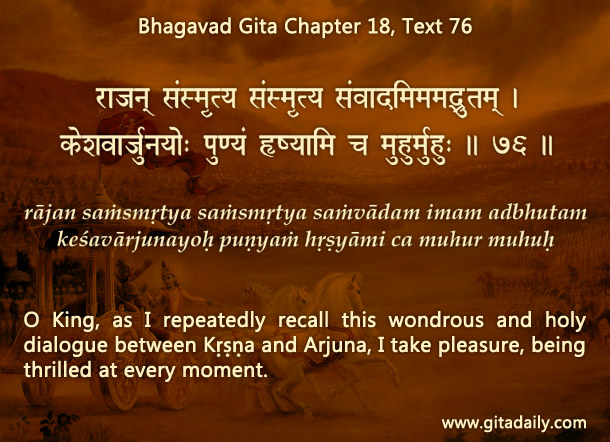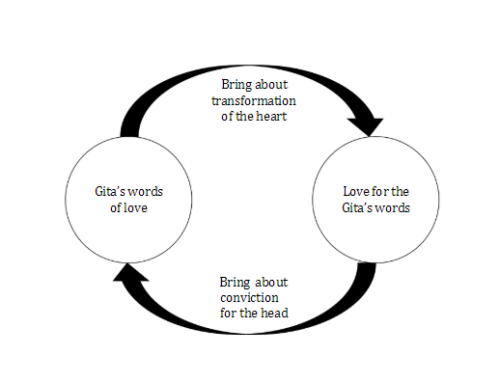Some people ask, “The Bhagavad-gita wants us to stay unaffected amidst pleasure-pain, success-failure, honor-dishonor. Won’t that make for emotionless living?”
No, because the Gita’s prescription makes us emotionally enriched, not impoverished.
The conclusion of the Gita describes how just hearing its message made Sanjaya surcharged with constant jubilation (18.76). And it (10.18) has already described how Arjuna after hearing the Gita’s four-verse essence became blissful – he found Krishna’s glories so relishable that he wanted to hear them more and more. Thus, hearing the Gita emotionally enriched both its first hearer and its first transmitter, so how can it be a prescription for emotionless living?
The point of the Gita is to give us a bigger picture of emotions and of life itself. We are eternal spiritual beings and are meant for something much bigger than seeking flickering emotional titillation by enjoying temporary material things. We are meant for eternal ecstatic emotions in relationship with the all-attractive Supreme Person, Krishna. Such emotions are supremely fulfilling and they are supremely beneficial – they inspire us to act virtuously for our own good and for the good of others. And they help us rise to the eternal spiritual level of life.
But to activate spiritual emotions, we need to follow undistractedly the purificatory process of bhakti-yoga, wherein we invest our emotions in Krishna as much as possible. If we let our emotions be excessively dissipated in temporary material stimuli, then we will have no emotional energy left for investing in Krishna. Just as a child on growing up no longer gets worked up about games played excitedly earlier in life, similarly, the more we become spiritually evolved, the more devotional emotions enrich us, and the less worldly emotions affect us – not due to artificial emotional suppression, but due to higher emotional fulfillment.
Explanation of article:



Leave A Comment